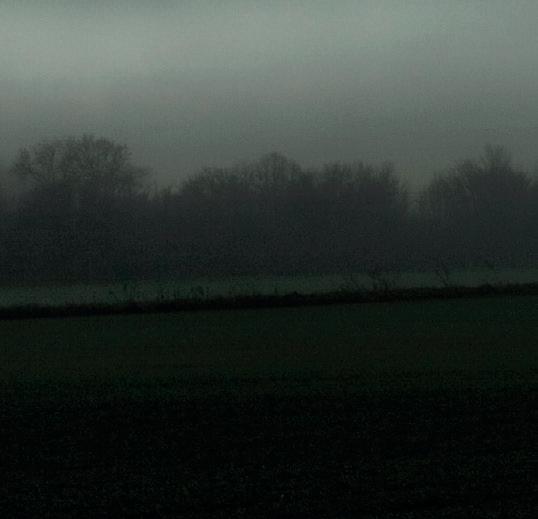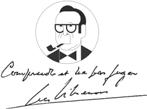







‘I love reading Simenon. He makes me think of Chekhov’
– William Faulkner
‘A truly wonderful writer . . . marvellously readable – lucid, simple, absolutely in tune with the world he creates’
– Muriel Spark
‘Few writers have ever conveyed with such a sure touch, the bleakness of human life’
– A. N. Wilson
‘One of the greatest writers of the twentieth century . . . Simenon was unequalled at making us look inside, though the ability was masked by his brilliance at absorbing us obsessively in his stories’
– Guardian
‘A novelist who entered his fictional world as if he were part of it’
– Peter Ackroyd
‘The greatest of all, the most genuine novelist we have had in literature’
– André Gide
‘Superb . . . The most addictive of writers . . . A unique teller of tales’ – Observer
‘The mysteries of the human personality are revealed in all their disconcerting complexity’ – Anita Brookner
‘A writer who, more than any other crime novelist, combined a high literary reputation with popular appeal’ – P. D. James
‘A supreme writer . . . Unforgettable vividness’ – Independent ‘Compelling, remorseless, brilliant’ – John Gray
‘Extraordinary masterpieces of the twentieth century’
– John Banville
Georges Simenon was born on 12 February 1903 in Liège, Belgium, and died in 1989 in Lausanne, Switzerland, where he had lived for the latter part of his life. Between 1931 and 1972 he published seventy-five novels and twentyeight short stories featuring Inspector Maigret.
Simenon always resisted identifying himself with his famous literary character, but acknowledged that they shared an important characteristic:
My motto, to the extent that I have one, has been noted often enough, and I’ve always conformed to it. It’s the one I’ve given to old Maigret, who resembles me in certain points . . .‘understand and judge not’.
Translated by william hobson
UK | USA | Canada | Ireland | Australia
India | New Zealand | South Africa
Penguin Classics is part of the Penguin Random House group of companies whose addresses can be found at global.penguinrandomhouse.com.
Penguin Random House UK
One Embassy Gardens, 8 Viaduct Gardens, London sw11 7bw penguin.co.uk
First published in French as L’inspecteur Cadavre by Éditions Gallimard 1944
This translation first published 2015
Published in Penguin Classics 2025 001
Copyright © Georges Simenon Limited, 1944
Translation copyright © William Hobson, 2015


GEORGES SIMENON and ® , all rights reserved
MAIGRET ® Georges Simenon Limited, all rights reserved original design by Maria Picassó i Piquer

All rights reserved
The moral rights of the author and translator have been asserted
Penguin Random House values and supports copyright.
Copyright fuels creativity, encourages diverse voices, promotes freedom of expression and supports a vibrant culture. Thank you for purchasing an authorized edition of this book and for respecting intellectual property laws by not reproducing, scanning or distributing any part of it by any means without permission. You are supporting authors and enabling Penguin Random House to continue to publish books for everyone. No part of this book may be used or reproduced in any manner for the purpose of training artificial intelligence technologies or systems. In accordance with Article 4(3) of the DSM Directive 2019/790, Penguin Random House expressly reserves this work from the text and data mining exception.
Typeset by Palimpsest Book Production Limited, Falkirk, Stirlingshire
Printed and bound in Great Britain by Clays Ltd, Elcograf S.p.A.
The authorized representative in the EEA is Penguin Random House Ireland, Morrison Chambers, 32 Nassau Street, Dublin d02 yh68
A CIP catalogue record for this book is available from the British Library isbn : 978–0–241–18847–7
Penguin Random House is committed to a sustainable future for our business, our readers and our planet. This book is made from Forest Stewardship Council® certified paper.
Maigret watched the world go by with large, sullen eyes, unintentionally giving himself that air of self-importance, that contrived dignity people tend to affect after hours spent sitting blankly in a train carriage. Well before the train slowed to enter the station, he saw men in voluminous overcoats spill out of every compartment, leather briefcase or suitcase in hand. Apparently oblivious to one another, they spent the rest of the journey standing in the corridor, carelessly hanging on to the brass rail across the window with one hand.
The window nearest the inspector was streaked horizontally with thick tears of rain. Gazing at that film of water, he saw the lights of a signal-box shatter into a thousand pointed rays; darkness had fallen. The next moment down below there were streets in straight lines, glistening like canals, houses, all absolutely identical, windows, doorsteps, pavements and, in that entire universe, a lone human figure, a man in a reefer jacket, hood up, on his way somewhere or other.
Maigret filled his pipe, slowly, carefully. To light it, he turned in the direction the train was travelling. Four or five passengers who were also waiting for the train to stop before hurrying off into the empty streets or making a dash for the station buffet, stood between him and the end
of the corridor. Among them, he glimpsed a pale face that immediately looked away.
It was Cadaver!
The inspector’s first reaction was to grumble: ‘He’s pretended not to see me, the idiot.’
His second was to frown. Why on earth would Inspector Cavre be going to Saint-Aubin-les-Marais?
The train slowed, came to a halt in Niort station. On the wet, cold platform, Maigret hailed a member of staff.
‘Excuse me, to get to Saint-Aubin?’
‘Twenty seventeen, platform three . . .’
He had half an hour to spare. After a quick trip to the public urinal at the far end of the platform, he pushed open the buffet door. He headed for one of the many unoccupied tables and sank into a chair to wait idly in the dusty light.
At the other end of the room Cadaver was sitting at an identical table without a tablecloth, still pretending not to see him.
The man’s name was Cavre, Justin Cavre, not Cadaver, of course. But Inspector Cadaver was the nickname he had been given twenty years earlier and that was still what they called him at the Police Judiciaire whenever he came up in conversation.
He was a ridiculous sight off in his corner, ill at ease, twisting uncomfortably in his seat to avoid looking in Maigret’s direction. It was obvious he had seen him. Lank and pasty-faced, with red eyelids, he was like one of those kids who mope around by themselves in the playground, hiding their longing to play with the other children under a sulky expression.
That was Cavre to a tee. He was intelligent. He may even, in fact, have been the most intelligent man Maigret had ever come across on the force. They were pretty much the same age, and, to tell the truth, Cavre was slightly the better educated of the two of them. Who knew, if he had persevered, he might have been promoted to detective chief inspector before Maigret.
So why had he already seemed to be carrying some sort of curse on his skinny shoulders even as a very young man? Why did he scowl at everyone as if he suspected them of wishing him ill?
‘Inspector Cadaver’s begun his novena . . .’
That was a phrase that used to be heard a lot in the old days at Quai des Orfèvres. On some flimsy pretext, or for no reason at all, Cavre would suddenly start giving everyone the silent, suspicious treatment. The loathing treatment, it seemed. For a week he wouldn’t say a word to a soul, and his colleagues would catch him sniggering to himself, like a man who has just uncovered the darkest desires of those around him.
Not many people knew why he had suddenly quit the force. Maigret himself had only found out later and he had felt sorry for him.
Cavre was madly in love with his wife, consumed by the sort of jealous, devastating passion that you would associate with a lover rather than a husband. What could he possibly find so extraordinary about that vulgar creature with the looks of a tart or a failed starlet? The fact remained, however, that for her sake he had crossed the line in his work. Some nasty business to do with money had come
to light. One evening Cavre had emerged, head bowed, shoulders hunched, from the chief’s office, and a few months later they learned that he had opened a private detective agency above a stamp dealer on Rue Drouot.
People were eating dinner, each in their own little world of boredom and silence. Maigret drank a glass of beer, wiped his mouth and grabbed his suitcase. On his way out, he passed within a couple of metres of his former colleague while the latter stared fixedly at a gob of spit on the floor.
Black and wet, the local train was already on platform three. Maigret settled down in the damp chill of an oldfashioned compartment and tried unsuccessfully to close the window all the way.
There were comings and goings on the platform, those familiar noises that one absorbs unconsciously. Two or three times the door opened, a head appeared – train travellers always instinctively hunt for an empty compartment – but, at the sight of Maigret, the door quickly closed again.
As the train pulled out, Maigret went into the corridor to shut a window that was letting in a draught. In the nextdoor compartment, he saw Inspector Cadaver, pretending to be asleep.
For goodness’ sake, it was just a meaningless coincidence. It was absurd to give it any thought. The whole business he had got himself involved in was ridiculous anyway, and Maigret wished he could just shrug it all off. Why on earth should he care if Cavre was going to Saint-Aubin like him?
Darkness slid by outside the windows, with the occasional
gleam of light by a road: the passing headlights of a car or, more mysteriously, more appealingly, the yellowish rectangle of a window.
Bréjon, the examining magistrate – a charming, shy man with old-fashioned, punctilious manners – had told him more than once, ‘My brother-in-law Naud will be waiting for you at the station. I have made sure he knows when you will be getting in.’
As he drew on his pipe, Maigret couldn’t help thinking: ‘What’s that wretched Cadaver up to, though?’
Maigret wasn’t even on an official case. Bréjon, whom he had worked with on numerous occasions, had sent him a short note asking if he would be so kind as to drop by his office for a moment.
It was January. It was raining in Paris, same as it was in Niort. There hadn’t been a break in the rain or glimpse of sun for over a week. In the examining magistrate’s office the lamp on the desk had a green shade. And while Monsieur Bréjon talked, incessantly wiping the lenses of his glasses as he did so, Maigret thought that there was a green lampshade in his office too, but that the magistrate’s was ridged like a melon.
‘. . . terribly sorry to bother you . . . especially as it is not on official business . . . Do sit down . . . Please . . . Cigar? You may know that my wife’s maiden name was Lecat . . . No, no matter . . . That’s not actually what I wanted to talk to you about . . . My sister, Louise Bréjon, became a Naud by marriage . . .’
It was late. People looking up from the street and seeing a light in the windows of the magistrate’s office, in the
sombre mass of the formidable Palais de Justice, would have assumed that weighty matters were being discussed up there.
And Maigret, with his bulk and furrowed brow, gave such an impression of fierce concentration that it was unlikely anyone would have guessed what he was thinking.
Well, while listening with half an ear to the story the bearded magistrate was telling him, he was thinking about green lampshades, envying the one with ridges and dreaming of getting one like it.
‘You can imagine what it’s like . . . Small town, absolutely minute . . . You’ll see for yourself . . . Middle of nowhere . . . Jealousy, envy, wanton malice . . . My brotherin-law couldn’t be a more decent, straightforward person . . . As for my niece, she’s just a child . . . If you agree, I’ll put in for a week’s exceptional leave on your behalf and the gratitude of my entire family, along with that which . . .’
That’s how you let yourself get embroiled in a stupid escapade. What had the magistrate told him exactly? He was still a provincial at heart. And like all provincials, he loved nothing better than a long saga about local families, whose names he pronounced as if they were figures from history.
His sister, Louise Bréjon, had married Étienne Naud. As though he were speaking of someone world-renowned, the examining magistrate added, ‘Sébastien Naud’s son, you know . . . ?’
Sébastien Naud, it turned out, was simply a well-to-do cattle dealer from Saint-Aubin, a village lost in the depths of the Vendée marshes.
‘On his mother’s side, Étienne Naud is related to the finest families in that part of the world.’
Very good. And?
‘They live a kilometre outside the little town, in a house practically on the railway line that runs from Niort to Fontenay-le-Comte. About two weeks ago, a young man from round there – a boy from quite a good family as a matter of fact, at least on his mother’s side, who is a Pelcau – was found dead on the track. At first, everyone believed it was an accident, and I still believe that to be the case. But since then, rumours have gone round. Anonymous letters have been sent . . . To cut a long story short, my brother-in-law now finds himself in a terrible predicament – accused, virtually to his face, of killing the boy . . . He wrote me rather a vague letter about it. I in turn wrote for more information to the public prosecutor at Fontenay-le-Comte, since Saint-Aubin comes under Fontenay’s jurisdiction. To my astonishment, I learned that the accusations were relatively serious and that an investigation appears inevitable . . . Which is why, my dear detective chief inspector, I ventured to call on you, as a friend, entirely . . .’
The train stopped. Maigret wiped the condensation from the window and saw a tiny building, a solitary light, a strip of platform and a lone railwayman running alongside the train, already whistling. A door slammed, and the train set off again. But not the neighbouring compartment’s door; Inspector Cadaver was still on board. They passed the odd farm, close by or off in the distance, but always down below, and whenever a light could
be seen, it would invariably be reflected in a stretch of water, as if the train were skirting a lake.
‘Saint-Aubin . . . !’
He gathered his things. A total of three people got off the train: an extremely old woman weighed down by a black wicker shopping basket, Cavre and Maigret. In the middle of the platform stood a very tall, very heavily built man in leather gaiters and a leather jacket, with something oddly tentative about him.
It was Naud, clearly. His brother-in-law, the examining magistrate, had told him when the inspector was coming. But which of the two men getting off the train was Maigret?
He approached the thinner of the two first. He was already raising a hand to his hat, his mouth half-open in a tentative question, when Cavre strode by disdainfully, his knowing attitude seeming to say, ‘It’s not me. It’s the other fellow.’
The examining magistrate’s brother-in-law turned on his heel.
‘Detective Chief Inspector Maigret, I believe? I’m so sorry not to have recognized you immediately. Your photograph is in the newspapers such a lot . . . But in our little backwater, you understand . . .’
He had firmly relieved Maigret of his suitcase and, as the inspector searched in his pocket for his ticket, he ushered him towards the level crossing rather than the station, saying:
‘There’s no need . . .’
Turning to the stationmaster, he called out: